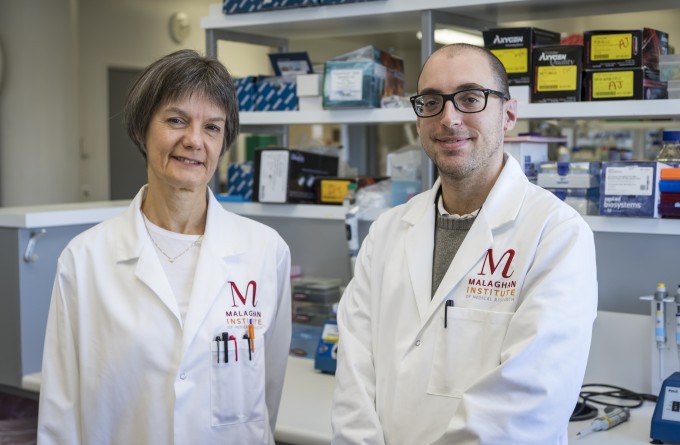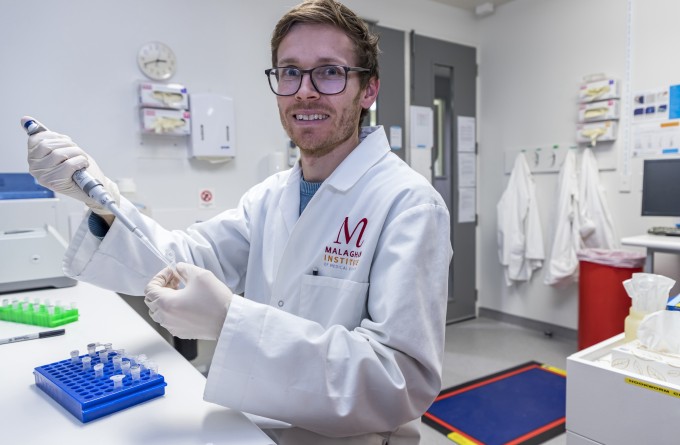26 May 2020
The COVID-19 level 4 lockdown period offered a unique set of challenges to many scientists at the Malaghan Institute, whose day-to-day work revolves around conducting experiments in the lab. While some key experiments could continue as an essential service, non-essential lab work was put on the backburner.

But this didn’t mean productivity at the Malaghan Institute fell. Rather, the isolation period presented a rare opportunity for research teams to relook through protocols, reanalyse data and – in some cases – look at evidence through fresh eyes.
For Professor Franca Ronchese’s immune cell biology team, this included gaining new perspective that could open doors for future allergy treatments.
“It started as an exercise for our team to go and do some basic research by reviewing research papers from other organisations,” says Prof Ronchese. “Having to read a lot and write about it is one of the best ways to gain new insight on a subject and notice aspects that one might have overlooked. It’s also something you can do when you cannot work in the lab.”
By reviewing the available literature on dendritic cells around the body, the team concluded that there could be something special about dendritic cells found in the skin, publishing their viewpoint ‘Dendritic cells and the skin environment’ in the journal Current Opinion in Immunology.
“Dendritic cells are what’s known as the sentinels of the immune system,” says Prof Ronchese. “They’re found in different organs throughout the body, and they play a role in educating the immune system and priming the immune response.
“Typically, we tend to assume that dendritic cells behave and function similarly to each other regardless of where they are. However, during our research, we found that dendritic cells in the skin may behave differently than first thought than the ones in the lung or the gut.
“In the paper we are looking at this question through the lens of allergies – as there is evidence to show in epidemiology that you may be more likely to be sensitised to an allergen if you’re exposed to it via the skin.”
How people become sensitised and eventually allergic to things like dust, pollen and food particles is largely unknown – partly because the mechanisms behind sensitisation often happen long before someone develops an allergy. While it’s understood that dendritic cells have a role to play in this process, there is still much to know about their contribution to disease. Could there be something unique about dendritic cells in the skin that make people more likely to be sensitised to an allergen?
“Surprisingly, we don’t know as much about the skin as we do other tissues in the body,” says Prof Ronchese. “While it’s much easier to get a skin biopsy than an intestinal one, skin is a tough tissue and difficult to disrupt at a cellular level, despite the fact it’s so accessible.”
With normal lab work now resumed, the immune cell biology team are hard at work exploring this discovery further, to find out what exactly dendritic cells are doing in the skin, and how they might be able to use them to prevent skin sensitisation to allergens.
Related articles

Tracking allergies to their source: new research offers insight into mechanisms priming the allergic response
2 July 2025

Research sheds new light on the allergic response – and how to disrupt it
5 June 2025

Fighting allergic skin disease at its root
17 December 2024

RNZ Our Changing World: Targeting bacteria, and health inequities
4 July 2024

New research deepening understanding of elusive eosinophils
27 June 2024

International collaboration finds lipid imbalance in the skin may contribute to inflammatory conditions
24 June 2024
